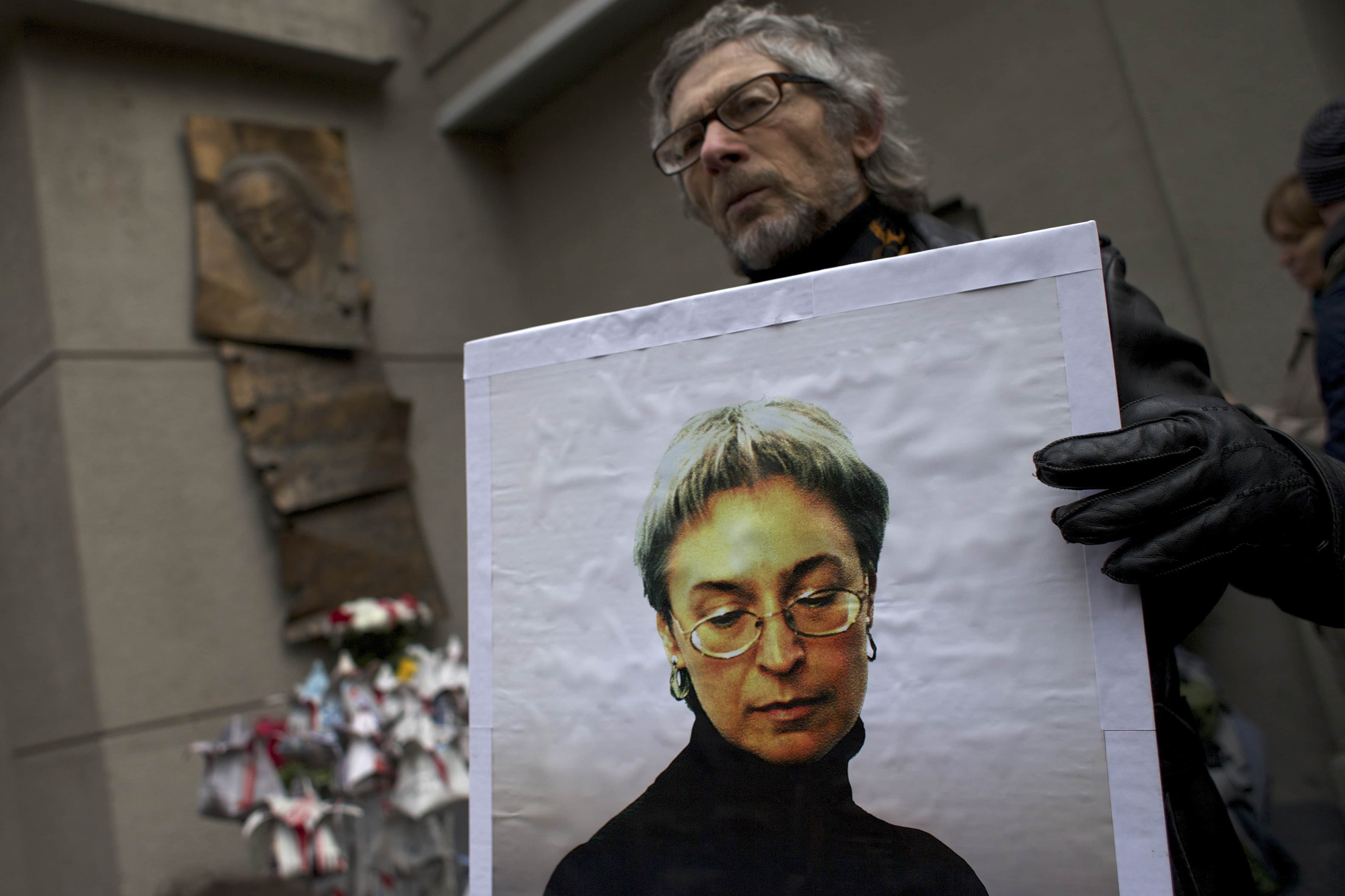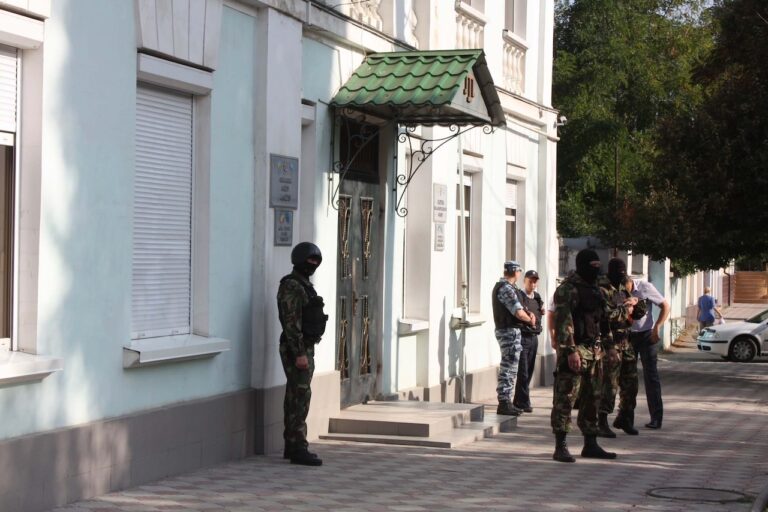Today marks eight years since the murder of Russian journalist Anna Politkovskaya, and almost a decade of further human rights abuses by Vladimir Putin’s government.
This article was originally published on cjfe.org on 7 October 2014.
By Clare Shrybman
Today marks eight years since the murder of Russian journalist Anna Politkovskaya, and almost a decade of further human rights abuses by Vladimir Putin’s government. Known for her work with the independent Moscow newspaper Novaya Gazeta, Politkovskaya was a critical voice of the Russian government, writing on rampant corruption, state repression, and army violence. Her critical commentary on the Russian military’s human rights abuses in Chechnya earned her numerous threats from Russian authorities.
On Oct. 7, 2006, Politkovskaya was shot multiple times and killed in the elevator of her apartment building.
In May 2014, a Moscow city court found gunman Rustam Makhmudov and four accomplices guilty of planning and participating in the brutal murder of Politkovskaya. Although her death gained widespread attention due to her following on an international scale, it was not an isolated incident. More than 55 journalists have been murdered in Russia since the early 1990s, and the country rates as one of the most dangerous in the world for reporters as its political climate and human rights record has worsened in the past decade.
Journalists and activists who voice dissent against Putin’s government have been tortured, imprisoned and killed, often under the pretence of recently enacted laws.
Despite the guarantee of freedom of ideas and speech with the Russian Federation’s constitution, fundamental rights to assembly were curtailed and defamation was recriminalized in 2012. Later that year, the Federal Treason and Espionage Act came into effect, allowing for arbitrary interpretation due to its broad language while imposing harsh restrictions on human rights defenders and civil society activists.
In 2013, Putin’s government enacted two laws severely limiting freedom of expression and the press. One of those laws banned the spread of material or information promoting same-sex relationships to minors, although written with vague and elusive language and failing to define what constitutes homosexual propaganda. The second, an anti-blasphemy law, introduces prison terms and large fines for those who insult religious beliefs in a public forum.
The new laws underscore a trend in Putin’s Russia, and violate international accepted standards of human rights and fundamental freedoms. Beyond that, their broad and unclear definition permits a wide application and opens the door to tremendous abuse.
Since Politikovskaya’s death, many Russian journalists have been imprisoned, tortured and killed for voicing critical opinions of government, military or police actions. This silencing of dissident press voices has occurred simultaneously with a widespread crackdown of NGOs operating in the field of human rights.
Politkovskaya’s brutal murder shocked the international community in 2006. Beyond the headlines, though, the country has continued to move further away from a free press. Politikovskaya’s story exemplifies the contemporary common experience of many journalists in Russia.
Clare Shrybman, a recent graduate of the post baccalaureate journalism degree from the University of King’s College, is a freelance journalist in Toronto.



